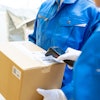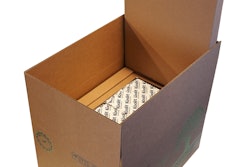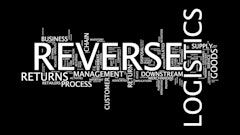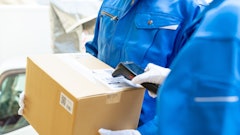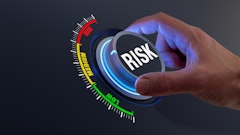
The sharp rise in foodborne illnesses is a growing public health concern, with the United States witnessing a 25% increase last year alone. This alarming trend highlights critical gaps in supply chain transparency and traceability, especially concerning perishable goods. Traditional tracking methods, like barcode scanning and QR codes, are no longer sufficient to ensure food safety and regulatory compliance.
RAIN RFID and wireless power technology working together are emerging as transformative solutions that extend beyond food and beverage storage, redefining how businesses monitor and manage virtually all kinds of goods across the supply chain. By providing real-time data, automating inventory management, and reducing waste, this combined technology redefines how businesses monitor and manage goods across the supply chain. With improved visibility and smarter tracking, companies can proactively address contamination risks, ensure product authenticity, and enhance operational efficiency.
Real-time visibility through smarter tracking
Unlike barcodes or QR codes that require manual scanning and offer only static information, RAIN RFID tags transmit continuous data, delivering dynamic insights into inventory location, movement, and condition.
A trait that makes this technology especially impactful is its ability to incorporate embedded sensors. These sensors monitor critical environmental factors such as temperature, humidity, and shock exposure, offering real-time alerts when conditions deviate from safe thresholds. This level of visibility allows businesses to respond immediately to potential issues, minimizing waste and ensuring product integrity.
For industries like food and pharmaceuticals, where products are sensitive to temperature fluctuations and contamination risks, real-time monitoring is essential. Last year, the United States saw up to 1,400 Americans fall sick due to foodborne illnesses, and over 4% of pharmaceutical stock was discarded due to damage or spoilage. RAIN RFID enables companies to continuously verify cold chain storage conditions, reducing waste and preventing costly recalls. Additionally, by automating data collection, RAIN RFID minimizes human error, enhances traceability, and ensures compliance with evolving regulations.
In a landscape where supply chain resilience is paramount, RAIN RFID stands out as a reliable solution. But to overcome the limitations of battery dependence and enable truly continuous and autonomous operation, RAIN RFID systems must be enhanced with wireless power, allowing businesses to make informed decisions, mitigate risks, and optimize their supply chain operations through uninterrupted data flow.
Powering efficiency and sustainability
Wireless power technology is driving a shift toward more sustainable and efficient operations by eliminating the need for disposable batteries. Traditional battery-powered sensors and tags create a constant stream of electronic waste and contribute to carbon emissions from production, transportation, and disposal.
By harnessing radio frequency (RF) energy, wireless power solutions provide a battery-free alternative that reduces waste, minimizes operational disruptions, and supports corporate sustainability goals.
Key benefits of wireless power
· Reduced carbon footprint: By eliminating batteries, companies reduce reliance on resource-intensive mining, manufacturing emissions, and landfill waste.
· Lower maintenance costs: Battery-free sensors and tags require less frequent replacement and upkeep, reducing operational expenses.
· Increased reliability: Continuous power delivery ensures devices remain operational without the risk of battery depletion.
· Enhanced sustainability metrics: Organizations can track and report on their carbon savings and waste reduction, supporting ESG (Environmental, Social, and Governance) initiatives.
Wireless power and RAIN RFID are already transforming industries, driving efficiency, sustainability, and cost savings across the supply chain.
Here are some real-world applications:
· Smart warehousing: Wireless sensors track inventory levels, monitor temperature and humidity, and provide real-time data without needing battery replacements, improving operational efficiency and preventing product spoilage.
· Cold chain monitoring: Battery-free sensors ensure temperature-sensitive products like food and pharmaceuticals remain within safe temperatures during transit, reducing the risk of product loss and costly recalls.
· Reusable asset management: RAIN RFID tags, enhanced by wireless power, enable real-time tracking of reusable assets like pallets, containers, and returnable packaging, optimizing their utilization and reducing losses.
From compliance to competitive advantage
Regulations such as the FDA’s Drug Supply Chain Security Act (DSCSA) are driving industries like pharmaceuticals to adopt RAIN RFID for enhanced traceability and compliance. As these mandates require tighter control over product movement and conditions, companies are embracing RAIN RFID technology to meet regulatory standards and streamline operations.
Beyond compliance, RAIN RFID offers an opportunity for businesses to unlock additional value through automation. Automated tracking improves inventory accuracy, reduces manual errors, and optimizes supply chain management.
Enhancing consumer experience with transparency and trust
As consumer demand for transparency grows, businesses are leveraging technologies like RAIN RFID and wireless power to provide unprecedented visibility into product journeys. For industries like food and pharmaceuticals, this technology enables the tracking of products from production to delivery, offering real-time data on events during the product journey. This level of transparency reduces concerns over contamination, spoilage, and counterfeit products, enhancing consumer confidence in the products they purchase.
RAIN RFID allows businesses to not only showcase the safety and authenticity of their products but also demonstrate ethical practices. In food, it enables companies to trace the origins of their items, ensuring freshness and quality. In pharmaceuticals, it ensures that medications are genuine, properly stored, and safe for use.
As consumers increasingly seek products aligned with their values, RFID offers an easy way for businesses to communicate sustainability efforts, track carbon footprints, and prove compliance with environmental standards. Nearly 83% of consumers consistently check food labels, and 57% struggle to access information on sourcing and product origins. RFID technology bridges this gap, enabling greater access to product information and meeting consumer expectations for transparency.
The future of supply chain management
As wireless power technology continues to evolve, its applications in supply chains are expanding, creating new possibilities for industries. Beyond powering devices without batteries, this technology is setting the stage for a future where products can autonomously track their conditions, communicate their status, and even trigger actions like restocking or conducting quality checks, all in real-time.
Imagine a supply chain where each item is equipped to self-monitor and take necessary steps based on predefined criteria—whether it’s notifying the system about a potential spoilage risk or confirming inventory levels. This level of automation will not only streamline processes but also enhance the agility and reliability of supply chains.
Ultimately, these innovations promise to revolutionize business operations, boost consumer confidence, and create more sustainable practices, all while ensuring that companies remain competitive and responsive to changing market needs. The potential of wireless power and autonomous tracking in supply chain management will have lasting benefits for businesses, consumers, and the environment.



